10 reasons why you should buy an iPhone — Naijatechspot.net
I am the type of person who has to have the latest piece of technology, and I love to keep up with the latest mobile trends. This is one of the major reasons why I have 3 Phones. I’m using both Android and iPhone, however, when most of my friends ask what phone they should have, I usually recommend the iPhone. In fact, even if you ask someone to recommend a good smartphone for you, they will most likely recommend you to purchase an iPhone over an Android device. So now the main question is, what are the benefits of the iPhone over Android?
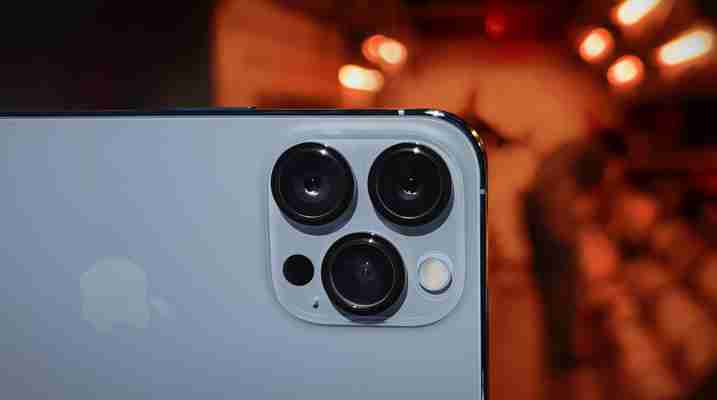
The majority of people use Android phones because of customization and also in terms of hardware, you’ve got so many different phones to pick from (Be it Samsung, Oneplus, Pixel, and so on).
If your following the tech trend on Youtube or Twitter, you’ve probably noticed that the iPhone vs. Android debate is quite heated. Android fans make some pretty snide remarks about iPhone users, and iPhone fans make some pretty snide remarks about Android users. Each side believes the other has made the wrong decision. Well, I’m not here for such arguments.
Putting aside the petty squabble, what are the advantages of iPhones over Android phones? There are numerous reasons why people prefer an Apple phone. Want to know why some people prefer to buy iPhones over Android phones? Continue reading to learn about some of the prominent reasons for choosing an Apple phone over one from a top Android manufacturer.
1. Security, Security, and Security
Any smartphone user’s primary concern should be mobile security. In recent years, phones have developed rapidly to store and share our most sensitive information. Whether they are used to manage our financial affairs, personal interactions, or business information, these devices contain valuable data that cybercriminals can exploit. To maintain safety, you’ll need to use a security-focused device.
Many users are unprepared for the dangers that come with using smartphones as a single point of contact for all of their critical data. While users bear a large portion of the responsibility for safe behavior, device and software developers bear an equal amount of responsibility for designing secure platforms.
Apple’s iOS operating system has long been regarded as the more secure Operating system. How so? The operating system used by Apple is a closed system. Apple does not make its source code available to developers, and iPhone owners are unable to modify the code on their devices. This makes it increasingly challenging for hackers to discover flaws in iPhone.
Android devices, on the other hand, are based on open-source code, which means that users can easily tweak their phone’s operating systems. Users who tweak too much risk compromising the security of their devices. Then there are the manufacturers tweak too. If an Android phone manufacturer releases a new device with a change to the Android operating system, there is a high chance vulnerability is created in that code and this will allow hackers to exploit it.
However, this isn’t the whole tale. While iOS is regarded to be more secure, hackers may still target iPhones.
2. Value
iPhones have a relatively high resale value. If you want to upgrade, an iPhone is fairly easy to resell than an Android phone. Though some Android devices retain their value very well, the cost of upgrading is less expensive for iPhone users.
If an iPhone user intends to keep his phone for a year or so before selling it to buy a new one, an iPhone appears to be a more manageable device. iPhones, particularly the latest catalog retain their value relatively well. So, if you prefer to buy an unlocked phone and then sell it when you want to buy a new one, an iPhone will appear to be quicker and more efficient than most Android phones.
3. iPhones are faster
I’ve been using both operating systems on a daily basis for years, I can say that the iPhone has far fewer glitches and hiccups when I’m multitasking or playing heavy games. With 6 GB of RAM in an Android Phone in 2021, even budget Android phones have passed that level but what is important is the chipset and its integration with the operating system.
If you’re considering purchasing the latest iPhone 13 Pro Max, keep in mind that the A15 Bionic chip inside outperforms any of the Top Android phones that are packed with flagship chipsets. Even though benchmarks don’t entail the full performance of a device, the latest iPhone 13 Pro Max outperformed the Samsung Galaxy S21 Ultra with Exynos 2100 chip in it. The gap is narrower in terms of CPU clock speed, but the iPhone 13 Pro Max scored a higher GPU score than the Exynos 2100-powered Galaxy S21 Ultra.
4. iPhones are easy to recognize
Most tech geeks can go on and on about the year’s most exciting phones. When they walk into an electronics store, they can choose their personal favorites from a variety of options. However, for those who do not keep up with the latest phone releases, most smartphones appear to be very identical. An iPhone is fairly simple to identify. Unquestionably, some people choose iPhones because they are the only recognizable devices among a wide variety of other options.
5. Easy to use
Despite the fact that most phone manufacturers use the Android operating system, a lot of these companies fail to simplify their skins for easy use. And this is why iPhone continues to be the easiest to use to this day, all due to its simplified and minimalistic interface. Also, iOS’s appearance and feel have remained consistent over time. This has been one of the iPhone’s advantages over Android phones because it operates in the same manner as it did since its inception.
A lot of people have both Android and iPhone. And when you ask them about usability, they’ll always prefer iOS over Android. Perhaps it’s Apple’s user experience and design that is simple to use or maybe they enjoy how easy it is to get an iPhone up and running right away.
iPhone has a major advantage over any Android phone when it comes to software upgrades. If your iPhone is compatible, you can upgrade your iOS at any time. According to a recent estimate, approximately 80% of iOS devices were running iOS 14 – the most recent version of Apple’s operating system, while Android smartphones accounted for only 4.9 percent of all Android devices. According to the survey, the majority of Android users are still using outdated versions of the operating system.
Android is far behind iOS in terms of total software upgrades over the years, attempting to match iOS’ industry-leading five-year software update policy. While there are numerous and varied distinctions between iPhones and Android-powered smartphones, we can all likely agree that at the end of the day, it all simply comes down to how long your gadget has been officially supported with software updates.
No one Phone company can match Apple’s five-year software update policy. The standard on most Android is two years of upgrades. No Android manufacturer gives five years of support on its smartphones as of this writing, except Google.
Google is the only manufacturer that provides a five-year software upgrade as of this writing and the policy was introduced on the latest Pixel 6 and Pixel 6 XL phones. This software upgrade policy would not only match Apple’s offer but would also send a powerful signal throughout the Android ecosystem. Hopefully, the other Android makers will follow suit, despite the fact that this regulation is still unofficial.
Android manufacturers have always been obligated by Google to offer at least two years of software and security upgrades. However, Google’s Pixel phones come with a three-year warranty that covers both major Android updates and timely security patches.
Samsung announced in 2020 that all of its flagship phones, starting with the Galaxy S10 series, will receive three years of significant software upgrades. Later on, Samsung made the software update available to a variety of tablets, foldable phones, and Galaxy A series phones. Given how popular Samsung’s devices are, this is a noteworthy change that has impacted millions of consumers throughout the world.
7. iPhones work seamlessly with other Apple products
If you’re planning to buy a new phone and already own Apple products such as a Mac or an iPad, it makes sense to consider an iPhone. You can use a wide range of third-party apps across your devices from various manufacturers. However, if you use an iPhone and a Mac, for example, you can take full advantage of features built into the operating systems by Apple to make things easy.
You might be surprised to learn how nicely iPhones interact with Macs if you haven’t used one yet. For example, you may use your MacBook to send and receive text messages, as well as receive and make phone calls, thanks to macOS’s Continuity function. You only need to keep your iPhone close by.
8. No bloatware
One disadvantage of choosing an Android phone, even if you love Google’s platform and its apps and services, is that the carrier through which you purchase your phone will almost certainly add its own apps and bloatware. On an iPhone, this isn’t a problem because you can delete any unwanted Apple apps when you set up your new phone. Many of the apps installed by the carrier on Android phones cannot be uninstalled. When you have a brand-new phone, that doesn’t seem like a big deal. However, if you’re a year or two in and need more storage space, you’re not going to look kindly on those unwanted apps.
9. Support
Generally speaking, both iPhone and Android phones perform admirably and seldom fail. However, everything goes down every now and again, and how you receive help when that happens is crucial. If you’re having trouble with your Android phone, try searching internet forums or contacting your carrier. With the iPhone, however, you can access a wide collection of relevant assistance articles on Apple’s website, as well as seek guidance through live chat or make a genius bar reservation at your local Apple Store to get guidance from an Apple specialist. This type of direct interaction with clients is still unavailable from Google.
10. Apple Pay
Apple Pay has many competitors, including Android Pay and Samsung Pay, but for the time being, Apple Pay is perhaps the most popular method for making mobile payments. It’s also extremely easy to use.
Apple Pay is more secure than a traditional credit, debit, or prepaid card. For purchases on your iPhone, Apple Watch, Mac, or iPad, you must use Face ID, Touch ID, or your passcode. Your card number and identity are never shared with merchants, and your card numbers are never stored on your device or on Apple servers.
The risk of a stolen credit card number is reduced because a credit card is not required. Apple, on the other hand, does not utilize the credit card number to complete the transaction, instead of using a token called the “device account number,” which further reduces the risk of credit card information being stolen.
Don't buy a new iPhone or Apple Watch right now
I was in the mall two nights ago shopping for back-to-work clothes and passed an Apple Store. It looked like lots of people were shopping for new iPhones. Part of me wanted to walk in and whisper to each of them, "Don't buy one right now!"
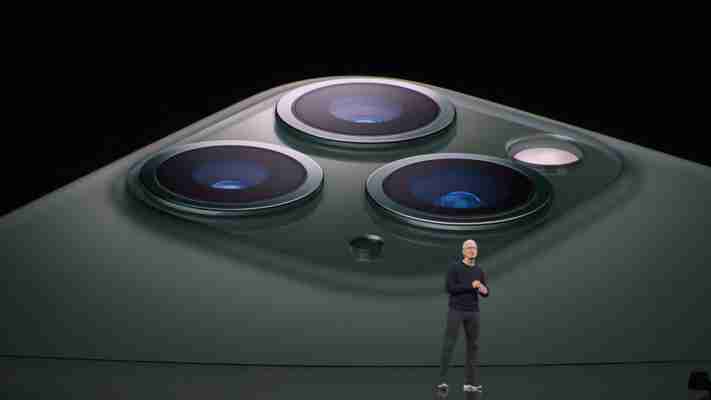
But I didn't. I kept walking and decided to write this instead.
It's a bad idea to plop down money for a new iPhone or Apple Watch right now. Apple announced Wednesday that it's hosting a fall event on Sept. 7 that's almost certainly for the iPhone 14. It may also announce new Apple Watches, though the company sometimes separates the events. Bloomberg said the new iPhones could ship as soon as Sept. 16, just a few weeks from now.
Sure, maybe you don't even care about getting the latest and greatest. You just want an iPhone. That's fair. But there's still a reason to wait. Apple typically drops the prices of its year-old iPhones after it introduces the new ones. So, you're also saving money by waiting a couple of weeks.
Apple is planning four new iPhone 14 models this year, according to Bloomberg. You can reportedly expect a regular version, a bigger-screened version of the regular model for the first time, and two higher-end Pro models with extra bells and whistles. That bigger-screened regular iPhone 14 might be appealing to folks who want the largest display on an Apple phone but who haven't wanted to shell out more than $1,000 for the iPhone Pro Max.
You might also want to think of it as a long-term purchase. You use your phone every day. You probably use it to take pictures, maybe play games. So if you're hanging on to it for a few years, maybe you should buy the latest model when it comes out — and if you can't afford it right now, consider budgeting for it next year. It'll get software updates for years to come.
The same goes for the Apple Watch. Apple's expected to introduce a new mid-tier Apple Watch SE model. That was last updated in 2020, so it should be a big upgrade to the budget-friendly model and will likely bring over some features that have been found in more expensive models for the past couple of years. Plus, Bloomberg says Apple is planning a new high-end Apple Watch Pro that could be more rugged. So, if that's up your alley, you might also want to wait.
The decision's up to you. But it seems that some folks don't always know to expect new iPhones in September. At this point, I recommend you just wait to see what your options are. It can't hurt!
Top 10 Advantages of an iPhone Over Android in 2022!
The vast majority of people love Android phones because of the different options of hardware and software customization that they have. However, if you happen to ask someone to recommend a good smartphone for you, they will probably ask you to buy an iPhone over Android. So the big question is, what are the advantages of iPhone over Android? In this article, i’m going to explain 10 benefits of having an iPhone over Android smartphone.
If you traverse across the Internet, you are likely to come across loads of Android fanboys making some pretty unflattering statements about iPhone users, or iPhone fans saying negative things about Android users.
But frivolous altercation aside, what are the advantages of iPhone over Android phones?
The short answer: The iPhone is user-friendly, has a sleek design, and it is very fast as far as its browsing speed is concerned. However, certain Android fanboys can’t really understand why people like Apple’s operating system, iOS.
what are benefits of iPhone over android?
If you ask iPhone users this question, they will most likely point out Apple’s Cleaner interface and design, data privacy, security or how simple it is to get an iPhone working right out of the box, or that they don’t need to take the time to customize a new phone extensively. They also love features such as iMessage, or they like some of the native apps that come pre-installed on a new iPhone, such as Books or Health. Now, let’s look at the major advantages of iPhone over Android.
Advantages of an iPhone over Android
Here are some of the advantages of having an iPhone over Android.
#1. iPhone is more user-friendly
Even though most Android phone creators try their best in producing these phones, iPhones remain to be the easiest phone to use until now. The look and feel of iOS has not changed over the years. This has been one advantage of iPhone over android phones because it works pretty much the same way it did in 2008. You just pick up, switch it on, and touch the app you want to open. Despite Apple making some improvements over the years like Control Center, the iPhone is still very easy to learn.
#2. iPhones have extreme security
Another advantage of iPhone over Android phones is security. If you use your phone to access your email or social networks, log on to your bank’s website or mobile app, send texts, store contacts or take selfies, Then security should be of concern, as this data could be valuable to cybercrooks and potentially harmful to you or your loved ones.And then the US Federal Bureau of Investigations (FBI) revealed to the world that even with physical possession of someone’s iPhone, it takes the assistance of an exceptionally skilled hacker to break into it and access the data. And that’s on a 32-bit phone. Apple doesn’t even make 32-bit phones anymore. They don’t expect iPhones to get infected. One of the biggest myths about iOS is that the operating system is immune to malware. However, iOS apps can still be infected with malware – there was the XcodeGhost debacle where hundreds of apps were found to include a counterfeit version of Xcode, the platform used by developers to build their apps.And using free wi-fi networks is just as big of a risk on iOS as it is on Android. However, Apple does take security seriously, releasing updates to all iOS devices directly, which helps contain any breaches upon becoming aware of them, and disinfecting everybody’s devices, regardless of who their carriers are. Google can’t do that for Android users, unless they have a Pixel or Nexus.
#3. iPhones works beautifully with Macs
If you’re shopping for a new smartphone and already have Apple products, like a Mac or an iPad, it makes sense to consider buying an iPhone. There are a variety of third-party apps you can use across your devices from different manufacturers. In addition, the Continuity feature in Apple products is really nice too. One good example is Handoff. If you own a mac, you can start working on a note on your iPhone and hand it off to your Mac to continue working on it. Also, you can send or receive messages from your mac even if your iPhone is 1000 miles away or turned off. How about that? Androids don’t get those.
There’s also AirDrop, which allows you to easily transfer photos, Videos and other files over Wi-Fi from your iPhone to a MacBook. And with iCloud keeping everything in sync, you have access on your Mac to the photos on your iPhone, and any notes or documents you create.They don’t want bloatware added by the carrierOn most Android phones, the carrier you purchase your phone through can add all kinds of apps and bloatware, and some can’t be uninstalled.This may not be a big problem when you have a brand new phone, but a year or two in when you need more storage space, you won’t be looking at those unwanted apps kindly.An iPhone, however, allows you to delete any unwanted apps when you set up your new phone. and starting with iOS 12, you can easily disable built-in apps you don’t need.
#4. You can update iOS in iPhone whenever you want
Another major advantage of iPhone over android is that you can update iOS in iPhone whenever you want. According to a recent report, about 80% of iOS devices were running iOS 15 – the latest version of Apple’s OS while Google reported that Android was 4.9% of the Android devices. The report further indicated that most Android users are still running the older versions of Android OS.
#5. Resale Value: iPhone Keeps Its Worth.
iPhones tends to hold their value pretty well. It’s easier to resell an iPhone than an Android phone if you want an upgrade. Though some Android devices also hold their value quite well, the cost of the upgrade is less painful for iPhone users.
#6. Apple Pay for mobile payments
Although Android manufacturers are trying to make Android Pay work, Apple Pay is the most popular method for making mobile payments. It is also very easy to use.
You can use Apple Pay by bringing your iPhone near the supported payment terminal at the checkout corner and then authenticate the payment with your phone’s Face ID or touch ID sensor. Apple Pay also supports reward cards and store issued credit card from a wide-range of companies. All of these are stored in the new Apple Wallet app.
#7. Family Sharing on iPhone saves you money
Family Sharing feature lets you share your purchases from App Store, iTunes, and iBooks with other people, even if they have their own separate accounts. Ideally, these other people are your family members, but there’s nothing to prevent you
from sharing your purchases with, say, your friends or roommates.
You can share these with your family with up to six people. By the way, when children want to make a purchase, you will receive an alert so you can also keep control on the stuff they buy in order to keep the bill under control. Other family sharing features include a shared calendar, shared photo albums and the ability to see where your kids are on a map at any time. Google still doesn’t offer these easy family sharing on Android devices.
#8. iPhones are generally faster than Android phones
Having used both platforms daily for years, I can say I’ve experienced way fewer glitches and slow-downs using iPhone. Performance is one of the area iOS beats Android most of the time. This seems ridiculous considering iPhone internals. The iPhone 13 Pro Max is currently the most powerful Apple smartphone and it features 6GB of RAM. Those specifications would be considered mid-range at best in the current Android world.
#9. Accessibility: iPhone is the king
iPhones are also preferred more over Android because of the accessibility features. In a head to head comparison, Apple is the accessibility king. Its built-in accessibility features, the many adaptive and assistive apps available, and ease of use make it the most preferred smartphone for the vast majority of people with disabilities.
For example, Apple’s iOS comes with a number of accessibility features (black on white, larger text sizes for default apps, interface zoom, etc.) that continue to be improved upon. Also, apple’s voiceover is acknowledged as one of its most useful accessibility feature. Voiceover is an accessibility feature that makes the iPhone and iPad easier to operate for the blind and visually impaired. With VoiceOver, anyone with a sight impairment can have their iPhone or iPad’s screen read to them, including buttons, icons, links, and other interface elements, and use gestures to navigate and select their which they can easily operate and work through efficiently. It also has the feature of getting the light of the screen getting dimmed at night for the users who basically love to read the things at night.
#10. Apple provides the best Support
In general, both iPhone and Android phones work pretty well and, for day-to-day use, don’t usually malfunction. However, everything breaks down once in a while, and when that Happens, how you get support is very important.
If you have a problem with Android phone, you can search online forums or reach out to your carrier. But with the iPhone, you can tap into a vast database of useful help articles on Apple’s website itself and can get help via live chat or you can even make a genius bar reservation at your favorite Apple Store and get help from an Apple expert. Google still doesn’t offer this sort of direct relationship with its customers.
Advantages of an iPhone over Android? Now you know
With numerous benefits of having an iPhone over Android, it’s easy to figure out why iPhones are preferred more over Android device when it comes to recommending A friend or family member which phone to buy. iPhone provides much better technical support and it’s easy to update the latest iOS than in Android phones. Moreover, iPhone is preferred more than Android device when creating a new mobile app.
Thanks for reading

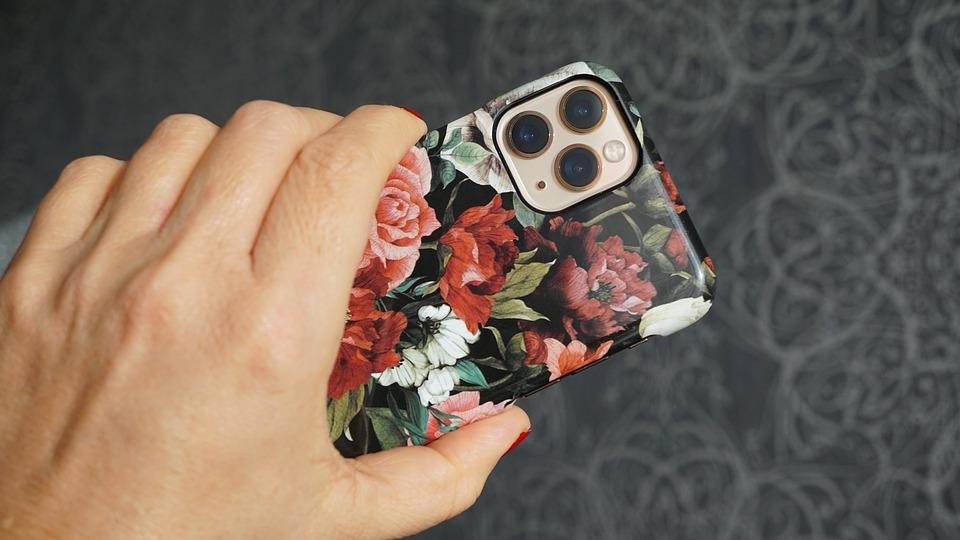
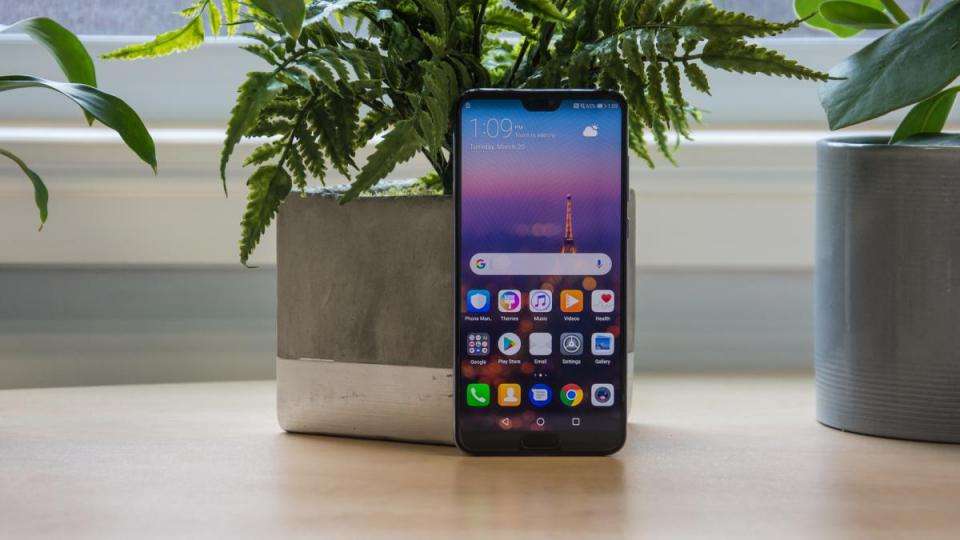
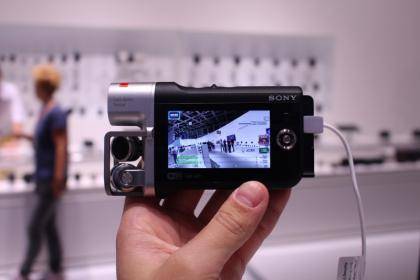
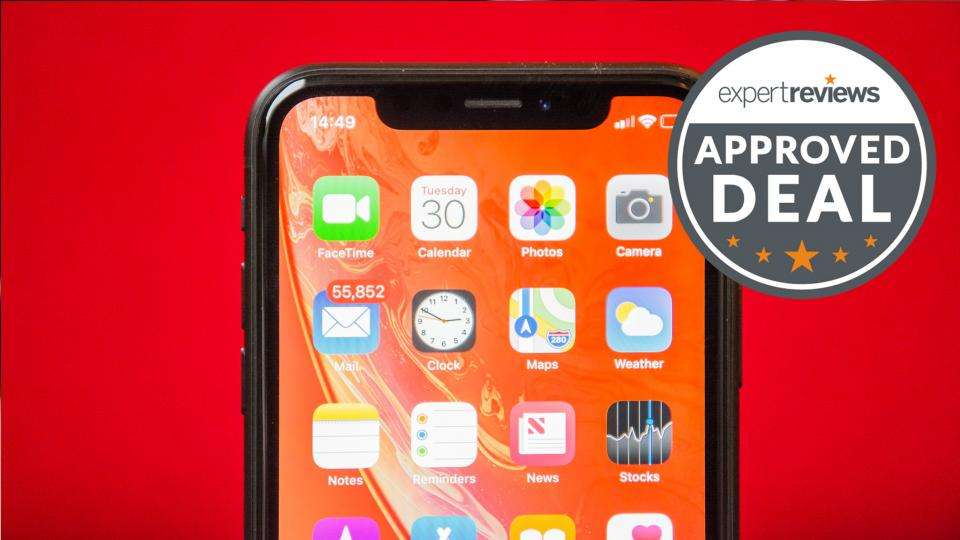
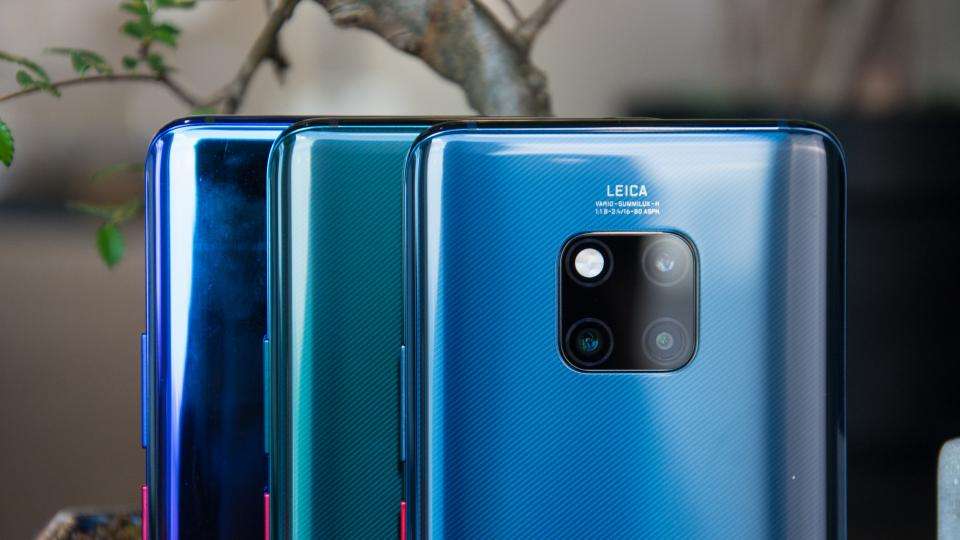
Leave a Reply